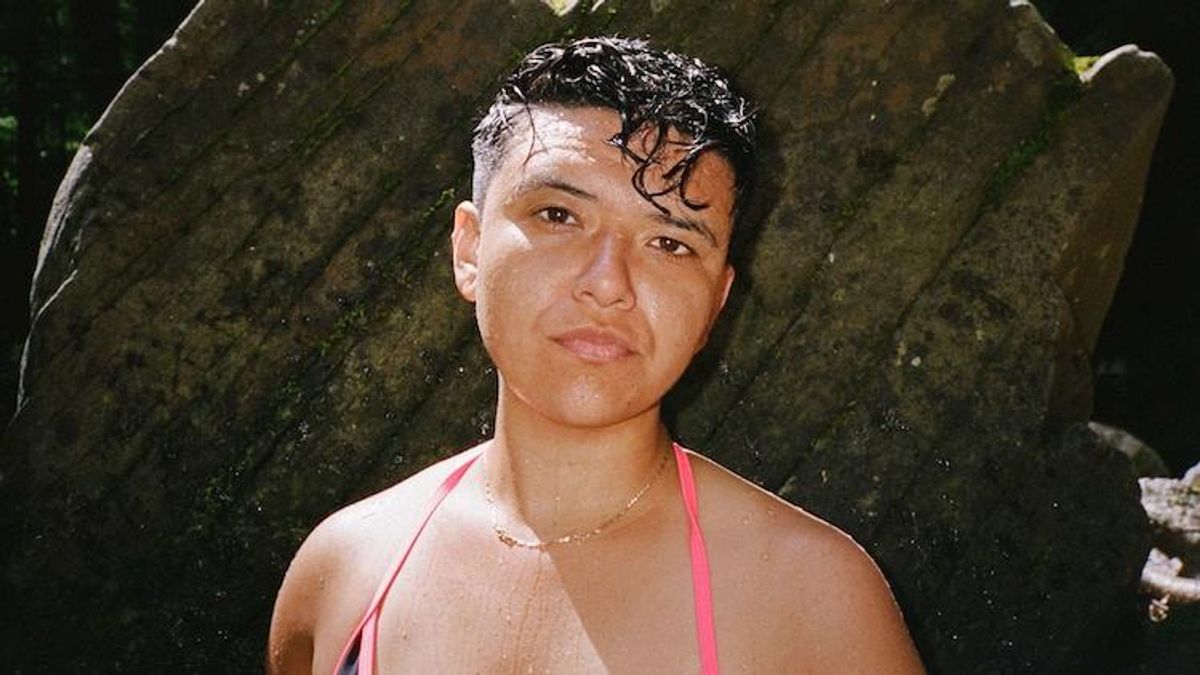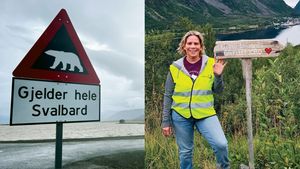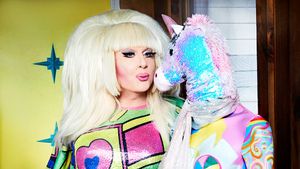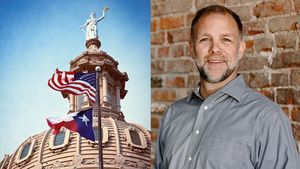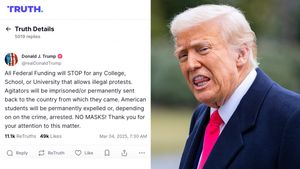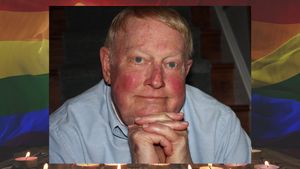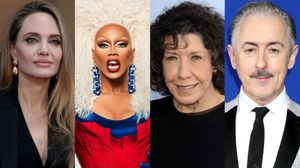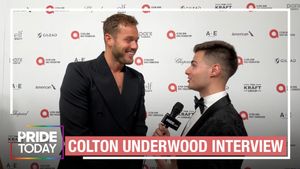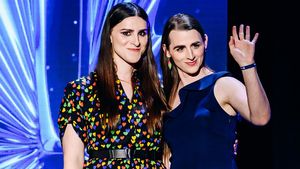Lylas, a queer zine by Chris Bernabeo, is really making us miss that trip we took last summer with all our friends in tow. Lylas, which stands for "love you like a sister," is a beautiful celebration of summer and sisterhood. Shot over many trips throughout the summer of 2017, Bernabeo shows the tenderness of queer friendship in hazy, gorgeous pictures of his friends.
We interviewed Bernabeo about the power of film, embracing our femme sides, and loving our sisters.
Related | Lylas's Hazy Ode to Summer & Sisterhood
OUT: What events, pop culture items, or personal memories inspired Lylas?
Christopher Bernabeo: A lot of it was outside [New York City], and it was kind of like Bridge to Terabithia.
Yeah, I was kind of reminded of that in the picture of the guy diving a little bit--
Yeah, yeah! We found these really beautiful secret pockets that were super special, and the people I was around [that summer] really inspired my work. They helped me take these intimate portraits that I wanted for the book, and then we had these great settings that allowed me to put them in a corner or put them on a rock to capture them in that. I think that elevates it a lot, too. A lot of it is in a communal space where we're all together in a house or we're all together in a car. We're all in this one place that really helped the pictures be more intimate, if that makes sense.
Yeah, it does! That's so magical. What's beautiful or magic to you about sisterhood that you wanted to explore?
One of the things about Lylas has always been a phrase that I use when I'm departing from a friend. When I'm leaving someone, I say "lylas." I really wanted to make something out of a lot of this film [I've shot]. When you're using film, there's something so precious about holding it and making a print or having it live somewhere tangible and not just on this digital platform, which sparked the idea of trying to make something. From that, I wanted it to have a theme or tone where sisterhood was celebrated. Since I was young, I've really related to female friendships and bonds and they've helped me grow. The way I carried those friendships allowed me to be authentic with myself and not be this macho, masculine guy.
I grew up in a small town in Massachusetts, in Cape Cod, and ten years ago, when you were in high school, you played sports if you were a boy. There was a lot of posturing as something to fit in and not knowing that you could go out there and be intimate and soft and it doesn't mean you're less of a man or anything. It's about finding those people and spaces that make you feel comfortable enough to do that, and once you do that, it translates into every aspect of your life.
You're able to walk around and be happy and be okay with how you want to present yourself and how you feel. Lylas is a celebration of that [and] of taking these portraits. A lot of what I've been saying about it is that sisterhood allows a sort of intimacy and support -- that's what I get from the people in these pictures. That's what I got from this project. Does that make sense? I'm navigating this too, and for the first time, really talking about it in such a descriptive way.

No, that totally makes sense. Within my own life, I surround myself with beautiful women and nonbinary people. Even the men that I'm with, it feels more like a sisterhood. Now, often on Grindr or other dating apps, you'll see people saying "no femmes." Do you think that we'll see misogyny or femmephobia filter out of the queer community over time with these conversations happening? Or are we doomed?
No, the one thing I hope is that, as time goes on, that stuff disappears. I think it's so sad to discriminate against your own queer community. It's weird to already be so discriminated against while fighting for equality. The fact that you would then take that and take how much progress we've made and how much beauty is in the community and then tarnish it...
There are a lot of people who criticized Adam Rippon, for example, and it's such a weird thing. We live in this bubble in New York where you don't think that people think that way, and then once it's on a national level, there are all these think pieces about Adam Rippon toning it down. It's so infuriating to still see it alive.
The positive side of that, though, is there's probably a young, queer person in middle America who has never seen someone like [Adam] celebrated by the media. A lot of negative stigmas comes from people being scared of what they don't know, and the more you see something and the more you experience it on your own, the more you're able to make a realization and not just go off of stereotypes or what your 102-year-old grandpa is telling you.
Related | Adam Rippon to Haters: 'I'm A Glamazon Bitch Ready For the Runway'
Yeah, I love that Adam Rippon can become this huge media darling and call himself a "glamazon" at the same time.
Exactly, and even if there is negative press about it, there's still so much positivity. It's baby steps, but I know we're not doomed. There's a movement happening and there are enough people in the queer community that celebrate the fact that we're all different. That's the beauty of it. I always say I'm so happy I'm gay because there's a fun aspect of defying something and going against the grain.
It's freeing, in a way.
Exactly, because it's been instilled in our society that coming out is difficult and once you do that, it frees you in a sense. I've said this about my work. I was not out until my junior year of college at Pratt Institute, and my photo work before that was always so sexualized but not believable because I didn't believe it. It really took me coming out and being honest with myself to know who I was and be able to present that to whoever I was shooting. It shows the person that I'm not hiding anything, so they don't have to either.

Coming out allows for freedom in so many other areas. Your photography is a great example of that. I love the hazy, soft, summer camp vibe from the pictures. You talked about finding those hidden corners of nature or the world, but how did you set up the shots? Did anything surprise you about the way they came out?
The fun part about it is this work was shot documentary-style over the summer. I knew I wanted it to be collected into something, but I knew that containing it in too much would limit it. I really wanted it to feel like genuine moments with these people, and not make it feel contrived. A lot of the photos were just following these friends of mine and having them show me spots they went to when they were little or spots that they'd heard about. My job was to tag along and capture the beauty of it.
The best thing about shooting with film is that you can't see it afterward -- you have to wait until it gets developed. There's something special about not having that instant gratification that digital photos give you. If you take a picture of your friends, they can look at and it and say, 'Oh, I don't like the way I look, Take it again.' You lose that authentic moment because they're concerned about their posture or about where their hip is. It isn't authentic.
With film, you really have to trust yourself and trust your gut that it's going to come out the way you want. The magic of it is getting it back a week later. Sometimes it works and sometimes it doesn't, but when it does, it's richer because of that trust your subject has in you that you got the picture -- that they don't need to worry about seeing it on the back of a screen.
That's really cool and fits into having it live somewhere as well -- particularly in a zine. The way I see zines is that they're kind of a summer thing, too.
Yeah, and I'm such a seasonal person. In summer, when it's light out until 9 PM, you are doing all these activities outside and shooting more. Then, in the winter, you're curled up in your bed watching The Parent Trap or something.
This one issue was from a whole summer, but I really want to open it up to more artists in the future. As much as I love film, I do appreciate and respect that in the digital era, a digital platform is really important. I want to have a website and go visit someone who's making really cool work and interview them and shoot a portrait of them.
Yeah, like a global network of sisters. That's so cute!
Exactly! I really want to celebrate other voices as well, because in a community, it's not just about one person, it's about sharing. If I can lend a platform for it, that makes me super happy.
Lylas Issue 01 is available for purchase here.
Photography: Chris Bernabeo
